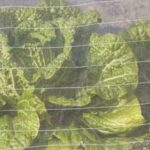Why are wood chipped mulches not used in vegetable gardens? Mulches play a crucial role in maintaining soil moisture, suppressing weeds, and improving overall soil health in vegetable gardens. There are various types of mulches available, each with its own set of advantages and disadvantages. However, when it comes to wood chipped mulches, they are generally not the best option for vegetable gardens due to several reasons.
Wood chipped mulches have both pros and cons. While they can help with weed suppression and moisture retention, they can also lead to nutrient depletion, alter soil pH, attract pests, and have a slow decomposition time. These factors can negatively impact the growth and yield of vegetables in the garden.
One of the main drawbacks of using wood chipped mulches in vegetable gardens is their potential to deplete nitrogen from the soil. This can hinder the growth of vegetables as nitrogen is an essential nutrient for their development. In addition, wood chipped mulches may also attract pests and rodents that can cause harm to vegetable plants. Given these drawbacks, it is important to explore alternative mulching options that are more suitable for promoting optimal vegetable growth.
Pros and Cons of Wood Chipped Mulches
Wood chipped mulches are commonly used in landscaping and ornamental gardens for their ability to retain moisture, suppress weeds, and improve soil structure. However, they are not typically recommended for use in vegetable gardens due to several reasons.
One of the main issues with wood chipped mulches is their potential to deplete the soil of nitrogen, which is essential for the healthy growth of vegetables. As the wood chips break down, they can consume a significant amount of nitrogen from the soil, leaving less available for the vegetable plants.
In addition to nutrient depletion, wood chipped mulches can also alter the pH of the soil. As the wood decomposes, it releases organic acids that can make the soil more acidic over time. This change in pH can negatively impact the growth and development of many vegetable crops that prefer a more neutral or slightly acidic soil environment.
Furthermore, using wood chipped mulches in vegetable gardens can also attract pests and rodents. The dark and moist environment created by the mulch provides an ideal habitat for insects and small animals, which may then cause damage to the vegetable plants. Additionally, wood chipped mulches have a slow decomposition process, leading to potential nutrient lock-up in the soil as microbial activity slows down.
Given these drawbacks, it’s essential for gardeners to consider alternative mulching options for their vegetable gardens. Sustainable alternatives such as straw, grass clippings, or compost are better suited for providing nutrients to vegetable plants without causing imbalances in soil acidity or attracting harmful pests. By choosing the right type of mulch, gardeners can ensure optimal growing conditions for their vegetables while minimizing potential negative effects on plant health.
| Disadvantages of Wood Chipped Mulches | Impact |
|---|---|
| Nutrient Depletion | Consumes nitrogen from soil |
| Soil pH Alteration | Makes soil more acidic over time |
| Pest Attraction | Creates an environment suitable for insects and rodents |
Nutrient Depletion
Wood chipped mulches are not commonly used in vegetable gardens due to their potential to deplete nitrogen from the soil, which can negatively impact the growth of vegetables. Understanding how wood chipped mulches affect the nutrient levels in the soil is crucial for successful vegetable gardening.
Effect on Nitrogen Levels
One of the main reasons why wood chipped mulches are not recommended for vegetable gardens is their high carbon content, which can lead to a process called nitrogen immobilization. The microorganisms in the soil consume nitrogen in order to break down the carbon-rich wood chips, leaving less nitrogen available for plant uptake. As a result, vegetable plants may experience stunted growth and reduced yields due to inadequate access to essential nutrients.
Impact on Vegetable Growth
The depletion of nitrogen caused by wood chipped mulches can directly affect the overall health and productivity of vegetable plants. Nitrogen plays a crucial role in the development of foliage and overall plant vigor, so any decrease in nitrogen availability can lead to deficiencies and poor growth. In essence, using wood chipped mulches in vegetable gardens could hinder the ability of plants to thrive and produce a bountiful harvest.
Alternative Mulching Options
To avoid nutrient depletion and support healthy vegetable growth, it is advisable to consider alternative mulching options that do not have as significant an impact on nitrogen levels. Organic materials like straw, grass clippings, or compost are excellent alternatives that provide weed suppression, moisture retention, and improved soil structure without causing nitrogen depletion. These alternative mulches can effectively support the growth of vegetables while maintaining proper nutrient balance in the soil.
Soil pH
When considering the use of wood chipped mulches in vegetable gardens, it is important to take into account how this type of mulch can affect the pH of the soil. The pH level of the soil plays a crucial role in the overall health and growth of vegetable plants. In this section, we will explore why wood chipped mulches are not recommended for vegetable gardens due to their potential impact on soil pH.
Acidification
One of the main concerns with using wood chipped mulches in vegetable gardens is their tendency to acidify the soil. As wood chipped mulches decompose, they release organic acids that can lower the pH of the surrounding soil. This acidic environment may be detrimental to many vegetable plants, as most vegetables thrive in slightly acidic to neutral soils. The altered pH levels can hinder nutrient uptake by plant roots, leading to stunted growth and decreased productivity.
Impact on Soil Microorganisms
In addition to directly affecting plant growth, the acidification caused by wood chipped mulches can also disrupt the balance of soil microorganisms. Beneficial microorganisms that contribute to nutrient cycling and plant health may struggle in an overly acidic environment, further compromising the overall soil quality and impacting vegetable growth.
Alternative Mulching Options
Given these potential drawbacks, it is advisable to consider alternative mulching options for vegetable gardens that do not significantly alter soil pH. Materials such as straw, grass clippings, or compost can provide effective weed suppression and moisture retention while maintaining a favorable pH level for vegetable crops. By choosing suitable mulches that do not disrupt the natural balance of the soil, gardeners can support healthy and productive vegetable gardens.
Pest Attraction
Wood chipped mulches, while commonly used in landscaping and decorative purposes, are not recommended for vegetable gardens due to their potential to attract pests and rodents that can harm vegetable plants. Here are some reasons why wood chipped mulches can be detrimental to the health of a vegetable garden:
1. Termite Attraction: Wood chipped mulches are attractive to termites, which can pose a serious threat to wooden structures in a garden, as well as nearby buildings or homes. The presence of termites can result in costly damage and potentially lead to the collapse of raised beds or wooden planters.
2. Rodent Infestation: The organic nature of wood chipped mulches provides an ideal habitat for rodents such as mice and rats. These pests can gnaw on vegetable plants, feed on roots, and even nest within the mulch, causing significant damage to the garden’s produce.
3. Fungal Growth: The decomposition process of wood chipped mulches creates a warm and moist environment that is conducive to fungal growth. Certain fungi not only compete with vegetables for vital nutrients but also produce toxins harmful to plant health.
Given these risks associated with wood chipped mulches, it is clear why they are not a suitable choice for vegetable gardens. While there are many alternatives available, it is crucial to carefully consider the type of mulch used in order to promote a healthy growing environment for vegetables without attracting pests or causing potential harm.
Decomposition Time
Wood chipped mulches, while commonly used in landscaping and ornamental gardens, are not recommended for use in vegetable gardens due to their slow decomposition process. Unlike other types of organic mulches, wood chipped mulches take a significant amount of time to break down, leading to potential nutrient lock-up in the soil. This can have negative effects on the growth and development of vegetable plants, ultimately impacting the yield and quality of the produce.
When wood chipped mulch decomposes slowly, it ties up valuable nitrogen in the soil as microbes work to break down the wood particles. As a result, this can lead to nitrogen depletion, which is essential for healthy vegetable growth. It is important to consider that vegetables require a steady supply of nutrients throughout their growing season, and wood chipped mulches may hinder this process.
Additionally, the slow decomposition of wood chipped mulches can also impact the overall soil structure and health in a vegetable garden. The accumulation of undecomposed wood chips can create an environment that is not conducive to plant growth. This can lead to compacted soil with poor drainage, affecting root development and water uptake by vegetable plants.
Overall, it is crucial for gardeners to choose the right type of mulch for their vegetable gardens in order to promote healthy soil conditions and optimal plant growth. There are alternative organic mulching options such as straw, grass clippings, or compost that decompose more quickly and contribute beneficial nutrients to the soil without causing nutrient lock-up issues like wood chipped mulches do.
| Issue | Impact |
|---|---|
| Nutrient Depletion | Affects plant growth due to tying up valuable nitrogen |
| Soil Structure | May lead to compacted soil with poor drainage |
| Alternative Mulching Options | Straw, grass clippings or compost as alternatives |
Alternatives to Wood Chipped Mulches
Wood chipped mulches are not commonly used in vegetable gardens for several reasons. While they may have their advantages, such as weed suppression and moisture retention, there are specific drawbacks that make them less than ideal for this particular application. Here’s why wood chipped mulches are typically avoided in vegetable gardens:
1. Nutrient Depletion: Wood chipped mulches have a high carbon-to-nitrogen ratio, which means they can deplete nitrogen from the soil as they decompose. This can result in nutrient deficiencies for vegetable plants, ultimately affecting their growth and productivity.
2. Soil pH Alteration: As wood chipped mulches break down, they can also alter the pH of the soil, making it more acidic over time. Most vegetables prefer a slightly acidic to neutral pH, so this change can negatively impact their ability to absorb essential nutrients from the soil.
3. Pest Attraction: Wood chipped mulches can attract pests and rodents due to their organic nature and ability to provide shelter. These pests can cause damage to vegetable plants by feeding on them or creating burrows in the garden bed.
Given these issues with wood chipped mulches, it’s important to consider alternative mulching options that are better suited for vegetable gardens. Some alternatives that are more suitable include:
– Straw: Straw is a lightweight and readily available mulching material that can help retain moisture in the soil while also adding organic matter as it breaks down.
– Grass Clippings: Grass clippings are an excellent source of nitrogen and can be used as a nutrient-rich mulch in vegetable gardens.
– Compost: Compost not only enriches the soil with essential nutrients but also helps improve its structure and water-holding capacity when used as a mulch.
By choosing these alternative options over wood chipped mulches, vegetable gardeners can promote healthy plant growth while minimizing potential issues associated with unsuitable mulching materials.
Conclusion
In conclusion, it is clear that while wood chipped mulches have their benefits, they are not recommended for use in vegetable gardens. The potential drawbacks, such as nutrient depletion, altering soil pH, pest attraction, and slow decomposition time, can negatively impact the growth and productivity of vegetable plants. It is important for gardeners to carefully consider the type of mulch they use in their vegetable gardens to ensure optimal conditions for plant growth.
When considering mulching options for a vegetable garden, it is crucial to prioritize the needs of the plants and the soil. Choosing a mulch that will not deplete essential nutrients from the soil or attract harmful pests is key to promoting healthy vegetable growth. Additionally, selecting a mulch that decomposes at a reasonable rate and contributes beneficial nutrients to the soil is essential for maintaining long-term soil health.
While wood chipped mulches may be suitable for other gardening applications, such as flower beds or landscaping, there are alternative mulching options that are better suited for vegetable gardens. Mulches such as straw, grass clippings, or compost provide numerous benefits without posing the same risks as wood chipped mulches. By making informed choices about mulching materials, gardeners can promote healthy and thriving vegetable gardens without the potential drawbacks associated with wood chipped mulches.
Frequently Asked Questions
Can I Use Wood Chips for Mulch in My Vegetable Garden?
Yes, you can use wood chips for mulch in your vegetable garden. Wood chips can help retain moisture, suppress weeds, and improve soil structure, creating a healthy growing environment for your vegetables.
What Is the Problem With Wood Chip Mulch?
The problem with wood chip mulch is that it can rob the soil of nitrogen as it decomposes. This nitrogen depletion can affect the growth and health of your vegetable plants, especially if the wood chips are not fully composted before use.
What Type of Mulch Is Best for Vegetable Garden?
The best type of mulch for a vegetable garden depends on various factors, including the climate, soil type, and specific needs of the vegetables being grown. Organic mulches like straw, grass clippings, or compost are often recommended for vegetable gardens as they can enrich the soil as they break down.
Ultimately, it’s essential to choose a mulch that complements the unique requirements of your vegetable garden.

If you’re looking to get into vegetable gardening, or are just looking for some tips on how to make your current garden better, then you’ve come to the right place! My name is Ethel and I have been gardening for years. In this blog, I’m going to share with you some of my best tips on how to create a successful vegetable garden.





